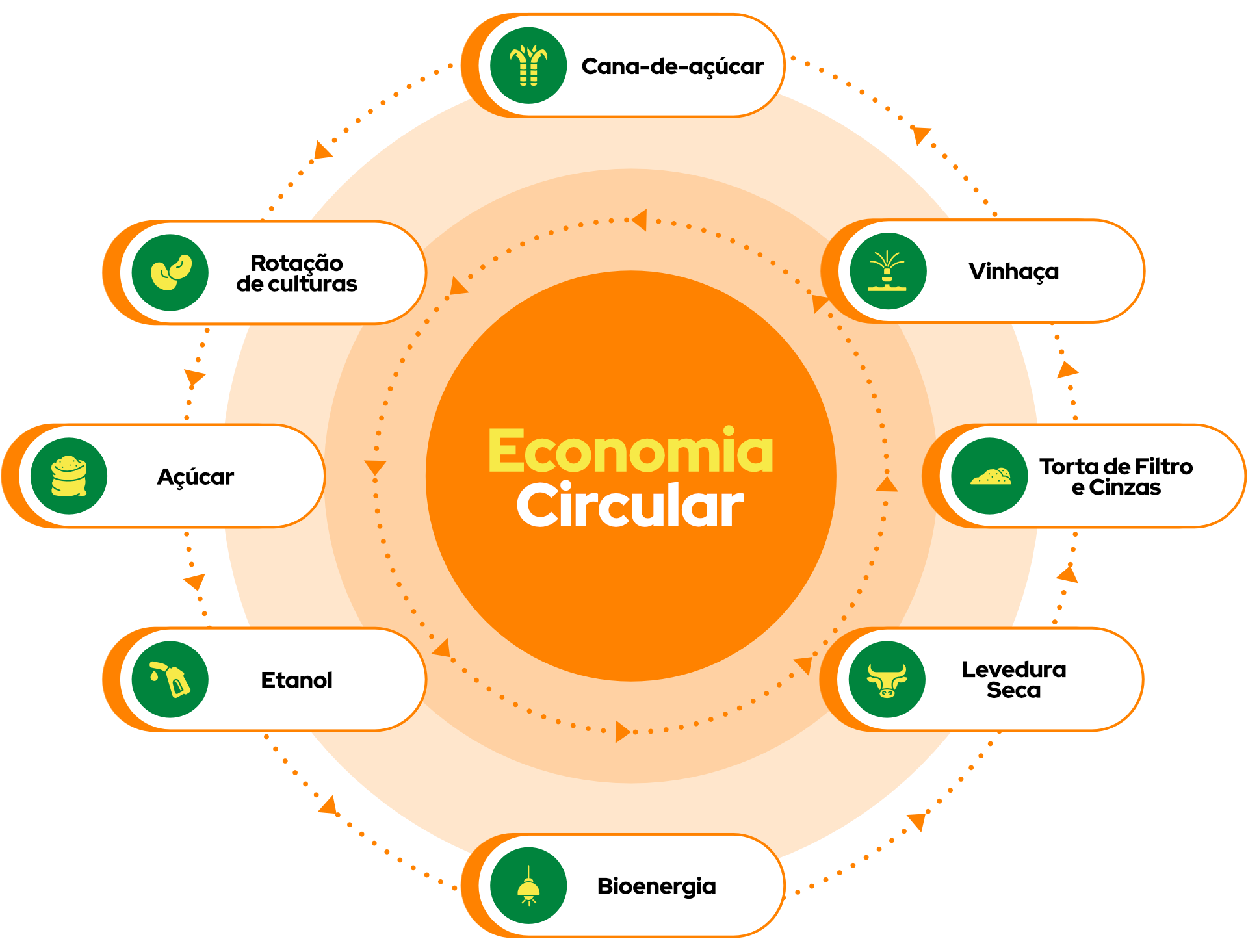Pillar 1
Materiality
Our priority themes were defined in 2021, in partnership with an external consultancy, when we identified and validated with our main stakeholders eight material themes related to the environment, society, the economy and Governance.
These themes were also correlated with the Sustainable Development Goals (SDGs) and the 10 Principles of the Global Compact, of which we have been signatories since 2021.
Biodiversity and Land Use
It involves activities that take place in environmentally protected areas, with high biodiversity value and land use, as well as a strategy to reduce impacts and/or mitigate risks.


Climate Change Management and Eco-efficiency
It deals with the company's initiatives to combat and adapt to climate change, manage GHG emissions, optimize the consumption of natural resources and carry out adequate waste management.

Diversity, Equal Opportunities and Non-Discrimination
It deals with how the company develops an increasingly diverse and inclusive environment for employees, expanding the participation of underrepresented and/or minority groups in the workforce.

Health, Safety and Human Capital Enhancement
It covers the company's people management, compliance with labor laws, concerns about the health, safety and well-being of employees, training and combating child or forced labor.

Community Development
It encompasses the actions of Usina Coruripe to contribute to the development of communities surrounding its operations, with a view to education, empowerment and people's autonomy.



Ethical Business Growth
It addresses the company's quest to constantly expand its business, always guided by high standards of compliance, ethical principles and transparent conduct in interactions with stakeholders.


ESG Strategic Agenda
It involves adopting a vision on socio-environmental issues that is increasingly integrated into the business, managing risks and incorporating opportunities to promote the company's progress in ESG management.

Innovation and Sustainability in the Value Chain
It encompasses the company's focus on research and development to promote sustainability – incremental or disruptive – not only of its final products, but in the management of links in the value chain.

